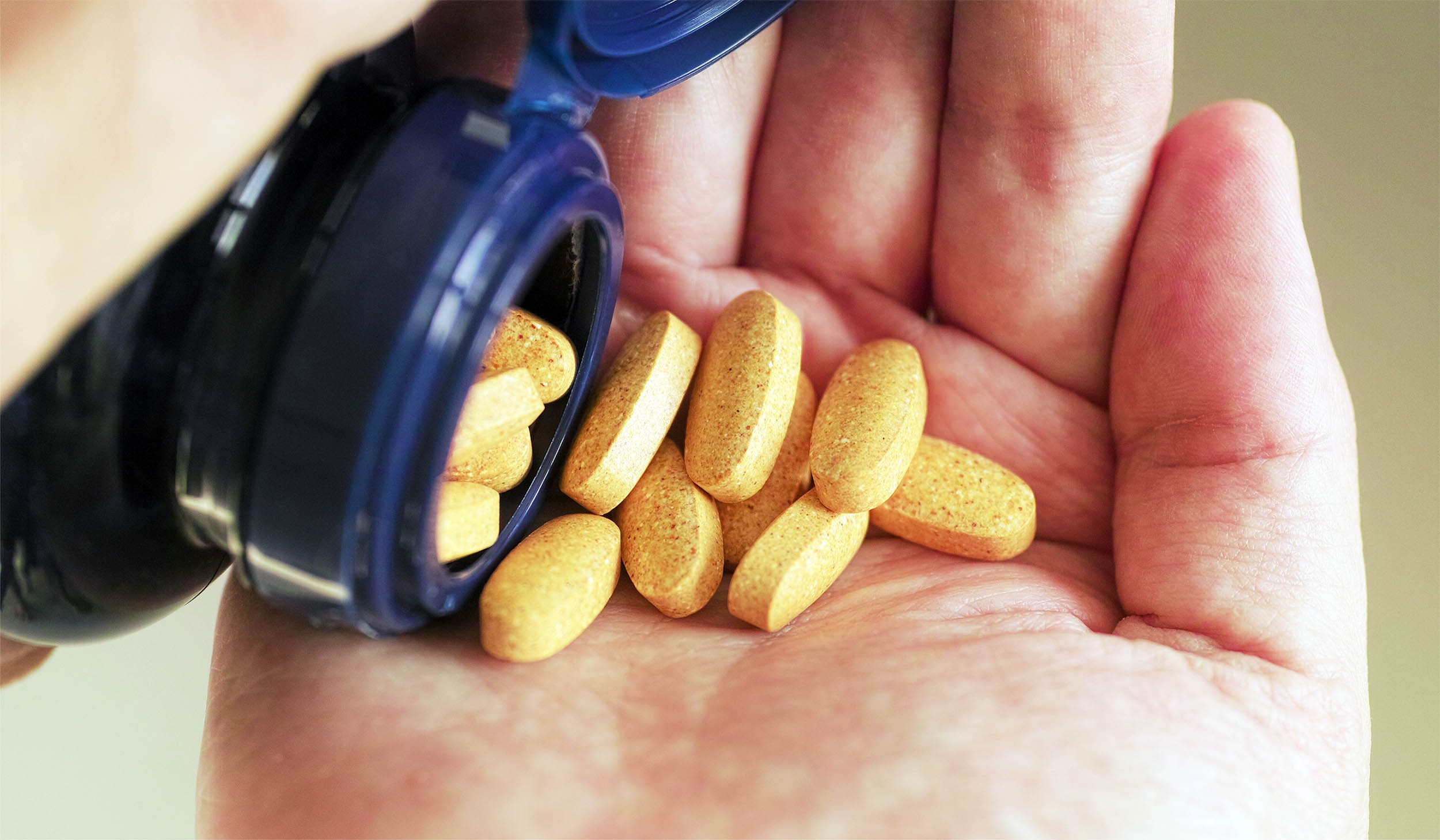- Taking vitamin D2 may lower vitamin D3 levels, suggesting the two forms aren’t interchangeable.
- Vitamin D3 appears more effective for maintaining healthy vitamin D levels in the body.
- Few foods naturally contain vitamin D, so fortified foods or supplements may still be needed.
Millions of people take vitamin D to support bone and immune health—but new research suggests the kind you choose could make a surprising difference.
A team of U.K. scientists reviewed data from clinical trials and found that vitamin D2—the plant-based version often found in fortified foods and some supplements—may actually lower levels of vitamin D3, the form your body naturally makes from sunlight.
Vitamin D helps your body absorb calcium, keep bones strong and support a healthy immune system. Because many people don’t get enough from sunlight—especially in the fall and winter—supplements are often recommended.
The new findings, published in Nutrition Reviews, raise fresh questions about whether the two versions of vitamin D are interchangeable. Let’s break down what the researchers found.
How Was the Study Conducted?
To explore how vitamin D2 might affect vitamin D3 levels, researchers from the University of Surrey, John Innes Centre and Quadram Institute Bioscience searched the PubMed database for studies published between January 1975 and February 2023. They found 202 articles, then narrowed those down to 20 that met their criteria. In the end, the researchers included 11 studies in their detailed statistical analysis.
Each study was a randomized controlled trial, meaning participants were randomly assigned to take vitamin D2 or not. The researchers compared vitamin D3 levels in the blood before and after supplementation to see how they changed. This approach helped reveal whether a consistent pattern appeared across studies—in this case, whether taking vitamin D2 affected vitamin D3 levels in the body.
What Did the Study Find?
People who took vitamin D2 supplements saw a noticeable drop in vitamin D3 levels compared with those who didn’t. On average, serum levels of vitamin D3 fell by about 18 nanomoles per liter by the end of the study period and about 9 nanomoles per liter when researchers looked at overall change during the trials.
Because this pattern showed up across several randomized controlled studies, the results suggest a real cause-and-effect link—taking vitamin D2 appears to lower vitamin D3 levels in the body.
The researchers say more work is needed to understand exactly how this happens, but the findings add to the growing evidence that vitamin D3 may be the better option for most people when choosing a supplement.
How Does This Apply to Real Life?
If you take a vitamin D supplement, this research shows that the type you choose really does matter. Both D2 and D3 can boost overall vitamin D levels, but D3 seems to do a better job of keeping those levels steady and supporting your health long term.
You can also get some vitamin D from food, though natural sources are limited. Fatty fish like salmon, mackerel and sardines are among the best options, along with egg yolks, beef liver and mushrooms exposed to UV light. Many everyday foods, such as milk, plant-based milks, yogurt and breakfast cereals, are fortified to help fill the gap—but it can still be hard to meet daily needs through diet alone. If you’re concerned about reaching your goal intake, considering talking to a health care professional about starting a supplement. They may even have a recommendation for you on which one to snag at the pharmacy or grocery store.
And for anyone who follows a vegan or plant-based diet, there’s good news: vegan vitamin D3 made from lichen—a natural, non-animal source—is available and works more like traditional D3.
Our Expert Take
This research adds weight to what smaller studies have hinted for years: vitamin D3 appears to be the more effective form of vitamin D for maintaining healthy levels in the body. The consistent drop in D3 seen after D2 supplementation suggests the two forms don’t work the same way, and that they shouldn’t be treated as interchangeable. While D2 can still raise total vitamin D to some degree, this analysis shows it may also cause D3 levels to fall. Until researchers understand why this happens, it makes sense to consider D3 the more reliable option for most people. Talk to a health care professional if you’re considering starting a vitamin D supplement or wondering if you’re taking the right one for your needs.
Source link

:max_bytes(150000):strip_icc()/BTCUSDChart-82ee4ab3eff1444aa3538f413772ea76.gif)